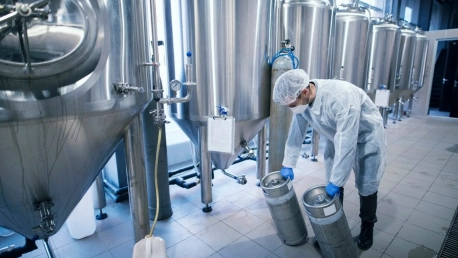Spain is taking a future-focused leap in the energy sector by channeling substantial investment into the production of biogas. This move towards renewable energy sources is underscored by a €50 million budget aimed at fostering the development of new biogas facilities. Specifically, the Catalan region is spearheading the initiative, dedicating €46 million in subsidies with a spotlight on medium and small-sized farms, a strategy highlighting the region’s commitment to sustainable practices.The ambitious plan sets forth the construction of 80 new biogas plants over the next five years, pushing the total to 150 by 2030. Catalonia already has a head start with 72 plants that are actively converting waste material including landfills, sewage, organic waste from municipalities and industries, as well as livestock manure. These plants are not just waste management solutions but are crucial installations that convert waste into valuable energy resources.
Strategic Goals and Environmental Benefits
Catalonian Biogas Plant Expansion
The primary vision of expanding biogas plants in Catalonia is to process livestock manure and organic waste into usable biogas. This initiative is a response to multiple environmental concerns as it facilitates the reduction of greenhouse gas emissions from waste materials. The extracted biogas can be utilized for producing heat, electricity, or upgraded to biomethane, which can be injected into the gas grid or used as renewable fuel. In addition to energy, these plants generate biofertilizers that have the potential to improve soil quality and reduce dependence on chemical fertilizers.Furthermore, the development of these plants plays into the larger narrative of job creation and industry growth within the region. By supporting small- to medium-sized farms, the initiative boosts rural economies and promotes agricultural sustainability. This is a clear demonstration of how environmental investments can also support economic development objectives, creating a win-win situation for the environment and the economy alike.
Renewable Energy Integration
Biogas production represents a strategic step forward for Spain as it aims to diversify its energy mix. By incorporating renewable sources like biogas, Spain can reduce its dependency on traditional fossil fuels, which are both economically volatile and harmful to the environment. The commitment to biogas aligns with the country’s overarching targets for renewable energy adoption and reflects a global directive to shift towards cleaner energy sources.The role of biogas in Spain’s renewable energy portfolio marks a period of transformation, where energy security and environmental preservation are given equal footing. Not only does it contribute to Spain’s renewable goals, but it also supports the European Union’s targets for reducing carbon emissions. The broader implications of Spain’s investment in biogas ripple through diplomatic, economic, and ecological landscapes, setting a standard for other nations in the quest for a more sustainable future.
Prospects for the Energy Sector
Economic and Ecological Growth
The biogas initiative in Spain is a testament to the country’s readiness to embrace renewable energy as a driver of both economic and ecological growth. By supporting the biogas sector, Spain is investing in a more resilient and diverse energy infrastructure that can withstand global market fluctuations and environmental changes. The creation of new jobs, particularly in rural areas, not only stimulates the economy but also helps maintain population levels and fosters regional development.Moreover, the biogas sector’s alignment with waste management addresses the pressing issue of waste accumulation and pollution. By transforming waste into wealth, Spain is not only harnessing a sustainable energy resource but also reducing the environmental footprint of waste disposal. This circular approach to resource management propels Spain further along the path to a circular economy, where the value of products, materials, and resources is maintained for as long as possible.
Setting a Global Example
Catalonia’s ambitious goal to proliferate biogas installations aims at sustainably handling livestock manure and organic refuse, transforming these into valuable biogas. This eco-conscious move combats greenhouse gas emissions, thereby mitigating climate impacts. The produced biogas becomes a source for generating electricity, heat, or even biomethane—a cleaner alternative fuel that can be distributed through existing gas networks or power vehicles.This initiative not only tackles environmental issues but also fortifies the regional economy by energizing job markets and aiding small to midsize farms, contributing to the vitality of rural sectors. As an ancillary benefit, the resultant biofertilizers from these plants enrich soil health and lessen reliance on synthetic fertilizers, creating a symbiotic circle of ecological and economic advantages. Thus, Catalonia’s biogas plant expansion reflects a dedicated drive toward a sustainable future that doesn’t compromise on economic prosperity.









